Crohn’s disease is a type of inflammatory bowel disease that causes inflammation and irritation in the digestive tract. It can lead to symptoms such as abdominal pain, diarrhea, weight loss, and fatigue. While there is no cure for Crohn’s disease, you can manage your condition by following a healthy diet and avoiding certain foods that may trigger or worsen your symptoms.
In this blog post, we will discuss some of the foods that you should avoid if you have Crohn’s disease, and why they can be harmful to your gut health. We will also provide some tips on how to choose foods that are more suitable for your condition, and answer some frequently asked questions about Crohn’s disease and diet.
High-fiber foods
Fiber is an important part of a balanced diet, as it helps regulate bowel movements, lower cholesterol, and prevent constipation. However, if you have Crohn’s disease, you may need to limit your intake of high-fiber foods, especially during a flare-up. This is because high-fiber foods can increase the amount of waste and gas in your intestines, which can irritate your inflamed bowel and cause more pain and diarrhea.
Some examples of high-fiber foods that you should avoid or limit if you have Crohn’s disease are:
- Whole grains, such as whole wheat bread, pasta, and cereals.
- Nuts and seeds, such as almonds, walnuts, sunflower seeds, and flax seeds.
- Raw fruits and vegetables, especially those with skins and seeds, such as apples, berries, cucumbers, and tomatoes.
- Beans and legumes, such as kidney beans, chickpeas, lentils, and soybeans.
If you want to include some fiber in your diet, you can opt for low-fiber foods, such as white rice, white bread, pasta, and crackers. You can also peel, cook, or puree fruits and vegetables to make them easier to digest. However, you should still eat them in moderation, and avoid them if they cause any discomfort.

Fatty foods
Fatty foods are another category of foods that you should avoid or limit if you have Crohn’s disease. This is because fatty foods can increase the secretion of bile acids, which are substances that help digest fats. However, bile acids can also stimulate the activity of the colon, which can worsen diarrhea and cramping in people with Crohn’s disease.
Some examples of fatty foods that you should avoid or limit if you have Crohn’s disease are:
- Fried foods, such as french fries, chicken nuggets, and doughnuts.
- Greasy foods, such as pizza, burgers, and bacon.
- Butter, margarine, mayonnaise, and oils.
- Full-fat dairy products, such as milk, cheese, yogurt, and ice cream.
If you want to include some healthy fats in your diet, you can opt for lean sources of protein, such as chicken, turkey, fish, and eggs. You can also use low-fat or non-fat dairy products, such as skim milk, cottage cheese, and yogurt. However, you should still eat them in moderation, and avoid them if they cause any discomfort.
Spicy foods
Spicy foods are another category of foods that you should avoid or limit if you have Crohn’s disease. This is because spicy foods can irritate the lining of your stomach and intestines, which can aggravate your inflammation and symptoms. Spicy foods can also increase the acidity of your stomach, which can cause heartburn and acid reflux.
Some examples of spicy foods that you should avoid or limit if you have Crohn’s disease are:
- Hot peppers, such as jalapenos, habaneros, and cayenne.
- Hot sauces, such as salsa, tabasco, and sriracha.
- Curry, chili, and other spicy dishes.
- Spices, such as garlic, onion, ginger, and turmeric.
If you want to add some flavor to your food, you can opt for mild herbs and spices, such as basil, oregano, parsley, and mint. You can also use lemon juice, vinegar, or honey to enhance the taste of your food. However, you should still eat them in moderation, and avoid them if they cause any discomfort.
Dairy products
Dairy products are another category of foods that you should avoid or limit if you have Crohn’s disease. This is because dairy products can cause lactose intolerance, which is a condition where your body cannot digest the sugar (lactose) found in milk and other dairy products. Lactose intolerance can cause symptoms such as bloating, gas, cramps, and diarrhea.
Some examples of dairy products that you should avoid or limit if you have Crohn’s disease are:
- Milk, cheese, yogurt, and ice cream.
- Cream, sour cream, and whipped cream.
- Butter, margarine, and cheese spreads.
- Milk-based desserts, such as custard, pudding, and cheesecake.
If you want to include some calcium and protein in your diet, you can opt for lactose-free or low-lactose dairy products, such as lactose-free milk, cheese, and yogurt. You can also use plant-based alternatives, such as soy milk, almond milk, rice milk, and coconut milk. However, you should still eat them in moderation, and avoid them if they cause any discomfort.
Alcohol and caffeine
Alcohol and caffeine are another category of foods that you should avoid or limit if you have Crohn’s disease. This is because alcohol and caffeine can dehydrate your body, which can worsen your diarrhea and cramping. Alcohol and caffeine can also irritate your stomach and intestines, which can aggravate your inflammation and symptoms. Alcohol and caffeine can also interfere with your medications and affect your liver function.
Some examples of alcohol and caffeine that you should avoid or limit if you have Crohn’s disease are:
- Beer, wine, and liquor.
- Coffee, tea, and energy drinks.
- Chocolate and cocoa.
- Cola and other soft drinks.
If you want to include some beverages in your diet, you can opt for water, herbal teas, fruit juices, and smoothies. However, you should still drink them in moderation, and avoid them if they cause any discomfort.
Artificial sweeteners
Artificial sweeteners are another category of foods that you should avoid or limit if you have Crohn’s disease. This is because artificial sweeteners can cause gastrointestinal distress, such as bloating, gas, cramps, and diarrhea. Artificial sweeteners can also alter your gut microbiome, which is the balance of bacteria and other microorganisms in your intestines. This can affect your immune system and inflammation levels.
Some examples of artificial sweeteners that you should avoid or limit if you have Crohn’s disease are:
- Aspartame, sucralose, and saccharin.
- Sugar alcohols, such as sorbitol, xylitol, and mannitol.
- Diet sodas, sugar-free candies, and chewing gums.
If you want to include some sweetness in your diet, you can opt for natural sweeteners, such as honey, maple syrup, agave nectar, and stevia. However, you should still eat them in moderation, and avoid them if they cause any discomfort.
Crohn’s Disease Tips for finding your trigger foods
One of the challenges of living with Crohn’s disease is finding out which foods trigger or worsen your symptoms, and which foods are more suitable for your condition. This can vary from person to person, and even from day to day, depending on your disease activity, medications, and other factors.
However, there are some tips that can help you identify your trigger foods and avoid them. These include:
- Keeping a food diary. A food diary is a record of what you eat and drink, and how you feel afterwards. You can use a notebook, an app, or a website to keep track of your food intake and symptoms. By doing so, you can spot any patterns or correlations between certain foods and your symptoms, and eliminate them from your diet.
- Following an elimination diet. An elimination diet is a method of removing certain foods from your diet for a period of time, and then reintroducing them one by one, while observing your symptoms. This can help you pinpoint which foods cause or worsen your symptoms, and which foods are safe for you to eat. However, you should only do this under the guidance of your doctor and dietitian, as it can be challenging and risky to do it on your own.
- Trying a low-residue diet. A low-residue diet is a type of diet that limits the amount of undigested food that passes through your intestines. This can help reduce the frequency and volume of your bowel movements, and ease your symptoms. A low-residue diet typically involves avoiding high-fiber foods, such as whole grains, nuts, seeds, raw fruits and vegetables, and beans. However, you should only follow this diet during a flare-up, and not for a long time, as it can lead to nutritional deficiencies and other complications.
Conclusion
Crohn’s disease is a chronic condition that affects your digestive system. It can cause symptoms such as abdominal pain, diarrhea, weight loss, and fatigue. While there is no cure for Crohn’s disease, you can manage your condition by following a healthy diet and avoiding certain foods that may trigger or worsen your symptoms.
Some of the foods that you should avoid or limit if you have Crohn’s disease are high-fiber foods, fatty foods, spicy foods, dairy products, alcohol and caffeine, and artificial sweeteners. These foods can irritate your inflamed bowel and cause more pain and diarrhea. Instead, you should choose foods that are more suitable for your condition, such as low-fiber foods, lean proteins, cooked fruits and vegetables, lactose-free dairy products, water, and natural sweeteners.
However, keep in mind that everyone’s body is different, and what works for one person may not work for another. Therefore, you should consult your doctor and dietitian before making any changes to your diet, and monitor your symptoms and reactions to different foods. By doing so, you can find the best diet plan for your Crohn’s disease, and improve your quality of life.
FAQ
Q: What is the best diet for Crohn’s disease?
A: There is no one-size-fits-all diet for Crohn’s disease, as different people may have different triggers and tolerances for different foods. However, some general principles that may help you find the best diet for your condition are:
- Eat small, frequent meals throughout the day, rather than large, heavy meals.
- Drink plenty of fluids, especially water, to stay hydrated and prevent dehydration.
- Avoid foods that are known to cause or worsen your symptoms, such as high-fiber foods, fatty foods, spicy foods, dairy products, alcohol and caffeine, and artificial sweeteners.
- Choose foods that are more suitable for your condition, such as low-fiber foods, lean proteins, cooked fruits and vegetables, lactose-free dairy products, water, and natural sweeteners.
- Consult your doctor and dietitian before making any changes to your diet, and monitor your symptoms and reactions to different foods.
Q: Can Crohn’s disease be cured by diet?
A: While there is no single diet proven to cure Crohn’s disease, dietary changes can play a significant role in managing symptoms, achieving remission, and improving overall quality of life.
Here’s a breakdown of how diet can impact Crohn’s disease:
Dietary Impacts on Inflammation:
- Certain foods can trigger inflammation in the digestive tract, worsening Crohn’s symptoms. These triggers vary from person to person and can include dairy products, gluten, processed foods, sugar, and red meat.
- Identifying and avoiding individual triggers through elimination diets can significantly reduce inflammation and improve symptoms.
Nutritional Deficiencies:
- Crohn’s disease can lead to malabsorption of nutrients due to inflammation and damage to the digestive tract.
- A balanced diet rich in fruits, vegetables, whole grains, and lean protein is crucial to address these deficiencies and support overall health.
Specific Dietary Approaches:
- Low-FODMAP diet: This eliminates fermentable sugars that can cause digestive distress in individuals with Crohn’s disease. Studies show its effectiveness in reducing symptoms and achieving remission.
- Specific Carbohydrate Diet (SCD): Restricts complex carbohydrates that can be difficult to digest and exacerbate inflammation, promoting a healthier gut environment.
- Paleo diet: Focuses on whole, unprocessed foods similar to what our ancestors might have eaten, potentially reducing inflammation and promoting gut health.
Important Considerations:
- Individualized approach: There is no one-size-fits-all diet for Crohn’s disease. Working with a registered dietitian can help identify individual triggers and develop a personalized dietary plan.
- Dietary changes are not a cure: While diet can significantly improve symptoms and manage the disease, it cannot cure Crohn’s disease completely. Medical treatment remains essential.
- Diet should be part of a comprehensive treatment plan: Combining dietary changes with medication, stress management, and lifestyle modifications can optimize disease management and improve overall well-being.
Q: Can I eat dairy products if I have Crohn’s disease?
A: Dairy products can be a problem for some people with Crohn’s disease, especially if they have lactose intolerance. Lactose intolerance is a condition where your body cannot digest the sugar (lactose) found in milk and other dairy products. Lactose intolerance can cause symptoms such as bloating, gas, cramps, and diarrhea.
If you have lactose intolerance, you should avoid or limit dairy products, such as milk, cheese, yogurt, and ice cream. You can also try lactose-free or low-lactose dairy products, such as lactose-free milk, cheese, and yogurt. You can also use plant-based alternatives, such as soy milk, almond milk, rice milk, and coconut milk. However, you should still eat them in moderation, and avoid them if they cause any discomfort.
Q: What are some good sources of protein for people with Crohn’s disease?
A: Protein is an essential nutrient that helps build and repair your muscles, organs, and tissues. It also helps fight infections and heal wounds. People with Crohn’s disease may need more protein than usual, especially if they have malnutrition, weight loss, or inflammation.
Some good sources of protein for people with Crohn’s disease are lean meats, such as chicken, turkey, fish, and eggs. You can also get protein from plant-based foods, such as beans, lentils, tofu, nuts, and seeds. However, you should avoid or limit high-fat meats, such as beef, pork, lamb, and bacon. You should also avoid or limit processed meats, such as ham, salami, sausages, and hot dogs. These meats can be high in saturated fat, salt, and additives, which can worsen your symptoms and inflammation.
Q: How can I stay hydrated if I have Crohn’s disease?
A: Staying hydrated is important for everyone, but especially for people with Crohn’s disease. This is because Crohn’s disease can cause diarrhea, which can lead to dehydration. Dehydration can cause symptoms such as dry mouth, thirst, headache, dizziness, and fatigue. It can also affect your blood pressure, heart rate, and kidney function.
To stay hydrated, you should drink plenty of fluids, especially water. You can also drink herbal teas, fruit juices, and smoothies. However, you should avoid or limit alcohol and caffeine, such as beer, wine, liquor, coffee, tea, and energy drinks. These beverages can dehydrate your body, irritate your stomach and intestines, and interfere with your medications and liver function.
Important Notice:
The information provided on “health life ai” is intended for informational purposes only. While we have made efforts to ensure the accuracy and authenticity of the information presented, we cannot guarantee its absolute correctness or completeness. Before applying any of the strategies or tips, please consult a professional medical adviser.
















0 comment
I was recommended this website by my cousin I am not sure whether this post is written by him as nobody else know such detailed about my difficulty You are wonderful Thanks
Great beat! I would like to learn while you make changes to your website. How can I sign up for a blog site? The account really helped me. I was somewhat aware of this, yet your broadcast provided a clear and brilliant concept.